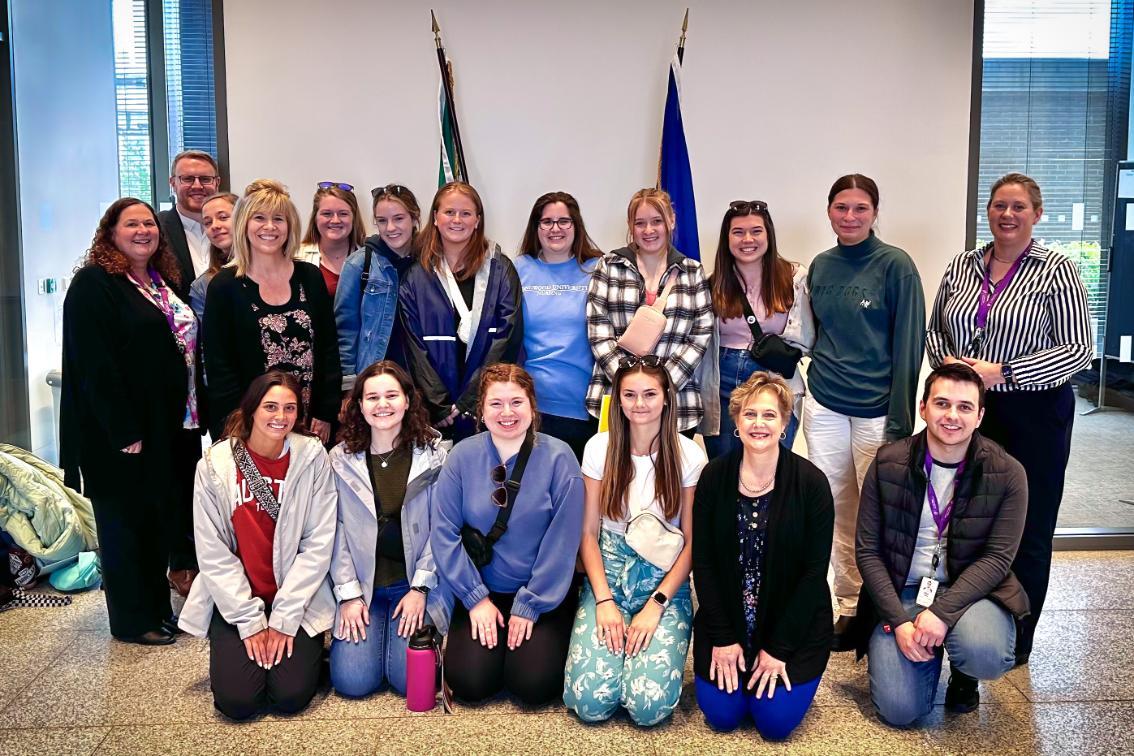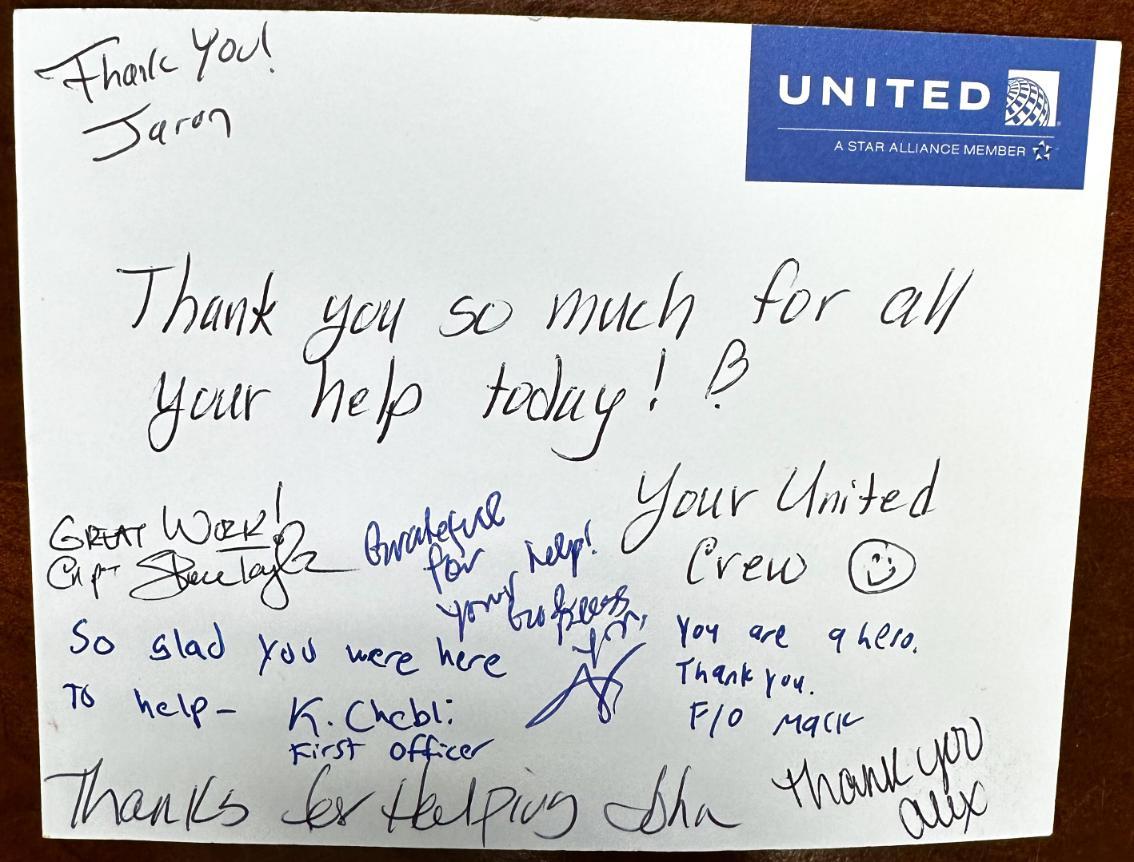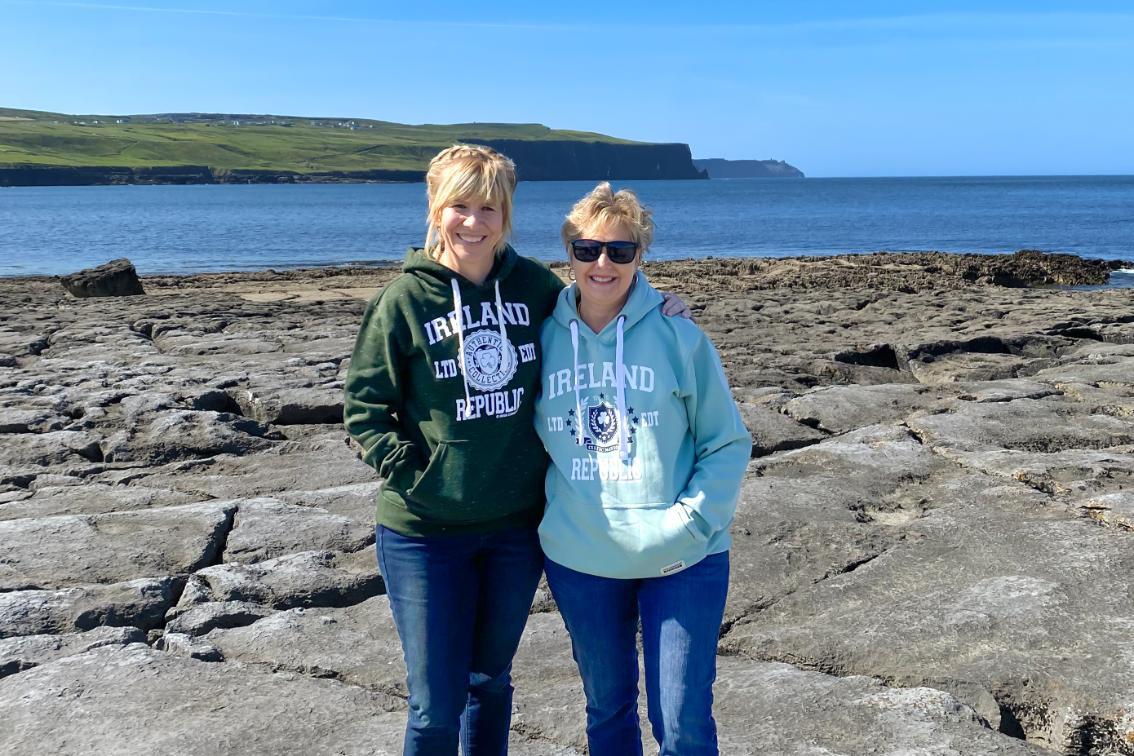Flying at 30,000 feet over the Atlantic Ocean, Dr. Kim Little heard the public address system on the airplane crackle.
“If there are any medical personnel on the flight, please identify yourselves to the flight crew,” came the call.
Immediately, Little, chair of Longwood’s nursing department, and Lisa Minor, associate professor of nursing, who were sitting among a dozen Longwood students on their way home from a study abroad experience in Ireland, stood up.
When she came to, she was complaining of chest pain radiating around her back, so we were pretty sure it was a cardiac event.
Dr. Kim Little, chair of Longwood’s nursing department Tweet This
A few rows in front of them, an elderly woman passenger lay slumped in her seat, unresponsive.
Little and Minor sprang into action.
“We asked the flight crew to bring us medical equipment that they had on board while we revived the passenger,” said Little. “When she came to, she was complaining of chest pain radiating around her back, so we were pretty sure it was a cardiac event.”
There is, of course, no good time to have a heart attack. But to have one in the back of a packed airplane, miles over the open ocean, hundreds of miles away from the nearest airport poses unique challenges.

Thankfully, the plane was well-stocked with medical supplies and people ready to help. Gabrielle Drewery ’25 worked on getting an IV started with a retired anesthesiologist who also volunteered to help. Minor administered nitroglycerin, which helped stablilize the patient, while Little held up the IV bag. Flight attendants brought four oxygen tanks to keep the patient breathing. A passenger nearby offered his device to read her blood-sugar level. Another passenger gave up their first-class seat.
“It was actually a very calm and controlled environment,” said Little. “Everyone was quiet and understood how critical the situation was and was eager to be helpful. I actually asked the [passengers] if anyone had a glucometer, and a gentleman stood up and said, ‘Here have mine.’ Our students were there as a support system, assisting in real time.”
When they got to first class, the two nursing professors turned the seat into a makeshift hospital bed. They reclined the seat back into a bed, propped the patient’s feet above her head with some pillows and covered her in blankets. They even fashioned a makeshift stand for the IV bag out of a wire hanger and the luggage compartment.
This is what nurses do. You have to respond in a calm and organized manner, and rely on all of your training no matter where you find yourself needed. The profession is about providing care, and I’m glad our students got to witness and participate in an unexpected situation that had such a positive outcome.
Dr. Kim Little, chair of Longwood’s nursing department Tweet This

But beyond treating the cardiac event, the biggest factor in saving the patient was time.
“I knew she was on borrowed time,” said Little. “She was confused, and her vital signs were low. I glanced at the screen on the back of a headrest, and all I saw on the map was the deep blue ocean.” Little asked the flight attendant how much longer until they touched down in Newark.
“He said it was about two and a half hours, and I knew it was critical to get the patient on the ground before that,” Little said. “They diverted the flight to Halifax, Nova Scotia, which was only 90 minutes away.”
Waiting on the tarmac in Canada was a team of paramedics, who whisked the patient away to the nearby hospital. She returned to the United States a few days later.
“This is what nurses do,” said Little. “You have to respond in a calm and organized manner, and rely on all of your training no matter where you find yourself needed. The profession is about providing care, and I’m glad our students got to witness and participate in an unexpected situation that had such a positive outcome.”
In the days that followed, United Airlines personnel reached out to Little and Minor with a note and phone call to thank them for their work aboard the plane.
One of the messages from the plane’s first officer: “You are a hero. Thank you.”



Leave a Comment